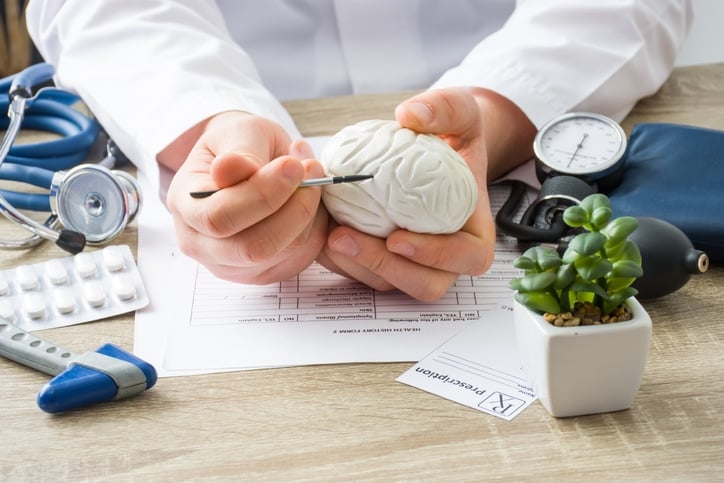Aug 16, 2021

Encephalopathy is a general term and means brain disease, brain damage or malfunction. Physicians often use encephalopathy and altered mental status interchangeably. When coders see this documentation in the healthcare records, they typically need to query the physician for clarification of the diagnosis. Sometimes, we find ourselves wanting to scream! There is already a coding tip on the most common types of encephalopathy on the HIA blog.
This coding tidbit is going to be geared more towards when to report and when to not report the diagnosis as well as querying. Even when we do all the right things, this diagnosis is still one of the most common reasons for denials. We’ll also look at some of the signs and symptoms that coders can look for in the medical records.
Causes of Encephalopathy:
This list below causes are not the only causes, but the common causes that coders see.
- Infection/viral—documentation of encephalopathy is seen often in patients with sepsis, COVID-19, pneumonia, urinary tract infections and many other bacterial or viral diseases
- Anoxia—lack of oxygen to the brain
- Alcohol or drug toxicity—drug and alcohol use/abuse
- Brain trauma or tumor—bleeding or alterations in pressure in the brain
- Liver disease—liver failure, cancer, hepatitis, cirrhosis or other disease of the liver
- Uremic—kidney failure
- Metabolic disorders—hyper/hyponatremia, hypo/hypercalcemia, hyper/hypocalcemia
- Toxic chemicals—mercury, lead, or ammonia
- Poor nutritional status—alcoholic withdrawal or inadequate vitamin B1 intake
Symptoms of Encephalopathy:
There are many symptoms associated with encephalopathy, but there is one symptom that is present in all types and that is altered mental status. Coders cringe when they see that documented as well.
- Altered mental status
- Dementia
- Lethargy
- Myalgia
- Twitching muscles
- Seizures
- Cheyne-Stokes respirations
- Coma
- Progressive memory loss and cognitive ability
- Personality changes
- Nystagmus
- Inability to concentrate/lack of
- Tremors
- Muscle weakness and atrophy
- Loss of ability to speak or swallow
Treatment of Encephalopathy:
Treatment will vary depending on the type and/or cause of the encephalopathy. Here are some of the most common treatments:
- Anticonvulsant medications
- Dietary changes
- Nutritional supplements
- Dialysis
- Oxygen therapy
- Rehabilitation
- IV fluids
- The main treatment is to treat the cause of the encephalopathy to help reduce or eliminate
There is one type of encephalopathy that cannot be reversed. Static encephalopathy is an altered mental state or brain damage that is permanent. The best possible outcome is to possibly prevent further damage.
Common Coding Dilemmas with Reporting Encephalopathy:
- Hepatic encephalopathy is NOT synonymous with hepatic coma
- When encephalopathy is due to hypoglycemia in a diabetic patient, metabolic encephalopathy is reported as an additional diagnosis
- When encephalopathy is due to postictal state it is not coded separately since it is considered to be integral to the seizure
- Static encephalopathy may be reported in addition to epilepsy (this is a chronic state and not a postictal state)
- Code “other” encephalopathy when it is linked to a specific condition and there is no specific encephalopathy listed in the index (e.g., hypertensive, anoxic, metabolic, toxic, etc.)
- Encephalopathy is not considered inherent in acute cerebrovascular accident/stroke and should be reported as an additional diagnosis when documented and supported
- Encephalopathy due to sepsis/septic should be reported as metabolic (see ICD-10-CM Index)
- If more than one type/cause of encephalopathy is documented, more than one code should be reported to fully capture the patient’s diagnosis
Even with the documentation and queries sent for clarification of the diagnosis of encephalopathy, denials are still coming in. These are either for missed queries or for clinical validation. All diagnoses must be documented and clinically supported to meet the Universal Hospital Discharge Data Set (UHDDS) definition of a secondary diagnosis. Coders should be reviewing the medical records looking for clear and consistent documentation of the diagnosis as well as treatment, or other criteria, making sure that the diagnosis meets the UHDDS definition for reporting.
Some facilities may have a physician liaison that can help with the records that lack clinical supporting documentation. Whatever your facility does in these cases, it is imperative that it is followed to help insure that the diagnosis will withstand an outside audit.
Clinical Documentation Integrity (CDI) should be getting specific clarification from the physician when only encephalopathy is documented. Even when the cause is known, such as metabolic issues, the physician should be specific with the documentation. This will make it much easier for an auditor to follow the “treatment” and or “monitoring” that is being given for the diagnosis of encephalopathy.
As much as coders don’t like querying for specificity, it must be done when lacking in the record (if allowed at the facility level). The patient’s medical record should stand alone as the accurate story of the patient’s encounter and provide the whole story/full picture of the patient’s illness and treatments provided. Specificity can turn a “CC” into an “MCC” for the record.
References
ICD-10-CM/PCS Coding Clinic, Second Quarter 2016 Pages: 3-4, 35
ICD-10-CM/PCS Coding Clinic, Third Quarter 2015 Page: 21
ICD-10-CM/PCS Coding Clinic, Third Quarter 2016 Page: 42
ICD-10-CM/PCS Coding Clinic, Fourth Quarter 2013 Pages: 89-90
ICD-10-CM/PCS Coding Clinic, Second Quarter 2017 Pages: 8-9
ICD-10-CM/PCS Coding Clinic, First Quarter 2017 Pages: 39-41
ICD-10-CM/PCS Coding Clinic, Second Quarter 2018 Pages: 22, 24-25
ICD-10-CM/PCS Coding Clinic, Fourth Quarter 2017 Pages: 98-99
ICD-10-CM/PCS Coding Clinic, Fourth Quarter 2018 Page: 16
ICD-10-CM/PCS Coding Clinic, First Quarter 2021 Page: 13
https://www.journal.ahima.org/documenting-acute-encephalopathy-in-covid-19-patients/
https://www.medicinenet.com/encephalopathy/article.htm
https://www.ninds.nih.gov/Disorders/All-Disorders/Encephalopathy-Information-Page
https://www.hopkinsallchildrens.org/patients-families/health-library/healthdocnew/A-to-Z-Encephalopathy
https://www.brainfacts.org/diseases-and-disorders/neurolgical-disorders-az/diseases-a-to-z-from-ninds/encephalopathy
ICD-10-CM Official Guidelines for Coding and Reporting FY 2021
In need of coding support? We offer both inpatient coding support and outpatient coding support services. Partner with us to replace underperforming coding vendors, get coding backlogs caught up, staff for a FMLA/vacation gap, special projects, to assist in Single Path Coding, or for Total Outsource Coding Support.
The information contained in this coding advice is valid at the time of posting. Viewers are encouraged to research subsequent official guidance in the areas associated with the topic as they can change rapidly.
Subscribe to our Newsletter
Recent Blogs
Related blogs from Medical Coding Tips
Debridement is the medical removal of dead, d...
Coding for treatment of cerebral aneurysms ma...
With the implementation of ICD-10-CM came mor...
It is difficult for coders to know when to re...
Subscribe
to our Newsletter
Weekly medical coding tips and coding education delivered directly to your inbox.





Leave a Comment